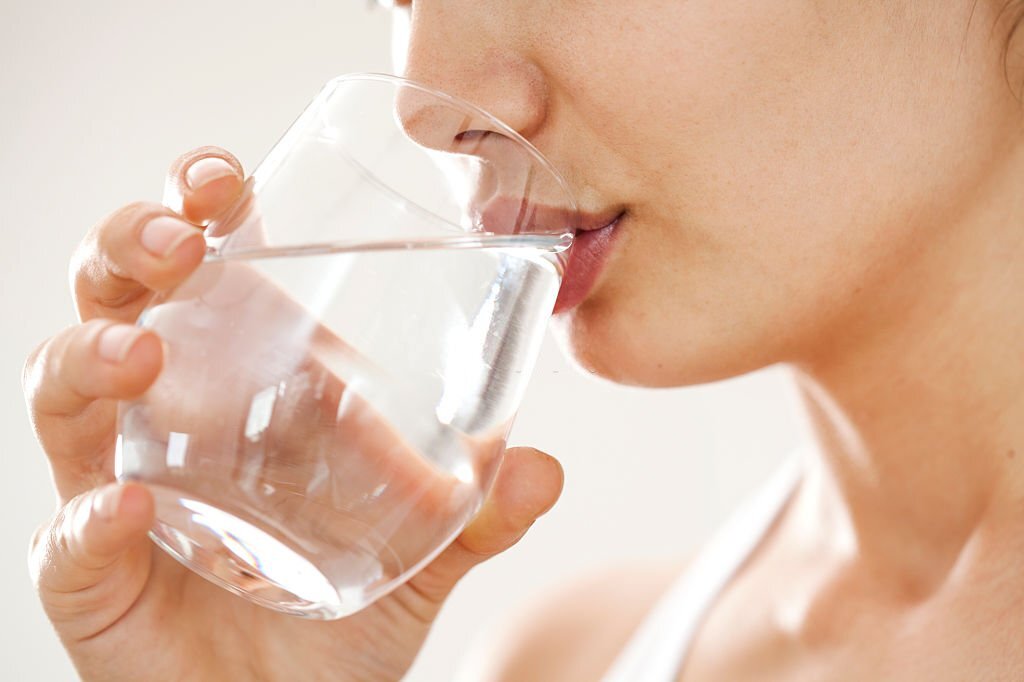Water fasting is a practice that has gained significant attention in recent years due to its potential health benefits. It involves abstaining from all food and only consuming water for a designated period. While fasting has been a part of various cultures and traditions for centuries, its popularity has surged as people seek alternative methods to improve their health and well-being. However, many individuals wonder if it’s possible to stay active and maintain energy levels during water fasting. In this article, we will explore the topic of staying active in water fasting and how you can unlock your energy potential while undergoing this process.
Table of Contents
Introduction
Water fasting is a form of fasting where individuals consume only water for a specified period. This practice allows the body to enter a state of ketosis, where it begins utilizing stored fat for energy. While the primary focus of water fasting is to promote various health benefits, such as detoxification and weight loss, it’s essential to address concerns about energy levels and staying active during this fasting period.
Understanding Water Fasting
Before delving into the topic of staying active during water fasting, it’s crucial to understand the basics of this fasting method. Water fasting involves abstaining from all solid foods, beverages, and supplements, except for water. It typically lasts for a defined period, ranging from a few hours to several days or even weeks, depending on individual goals and health conditions. During this period, the body transitions into a metabolic state called ketosis, where it starts burning stored fat for fuel.
The Benefits of Water Fasting
Water fasting offers several potential benefits for overall health and well-being. Some of the key benefits include improved insulin sensitivity, enhanced autophagy (the body’s natural process of cellular regeneration and repair), reduced inflammation, increased mental clarity, and weight loss. While these benefits are enticing, many individuals worry about their energy levels and whether they can remain physically active during water fasting.
Maintaining Energy Levels during Water Fasting
Now we will discuss some points which will help us in staying active in water fasting:
Hydration is Key

The first and most crucial aspect of staying active during water fasting is to ensure adequate hydration. Since water is the only source of sustenance during fasting, it becomes vital to drink enough water to maintain proper hydration levels. Dehydration can lead to fatigue, dizziness, and a lack of energy, making it challenging to engage in physical activities. Aim to drink at least 8 to 10 glasses of water daily, or as per your body’s requirements, during the fasting period.
Listening to Your Body
Listening to your body is essential when staying active during water fasting. Pay attention to any signs of fatigue or weakness and adjust your activity level accordingly. It’s crucial to understand that your energy levels may fluctuate during fasting, so it’s essential to respect your body’s limits and avoid pushing yourself too hard.
Light Physical Activity
Engaging in light physical activity can help maintain energy levels during water fasting. While intense workouts may not be recommended during fasting, incorporating gentle exercises such as walking, yoga, or tai chi can provide numerous benefits. These activities promote blood circulation, improve flexibility, and enhance overall well-being. Listen to your body and choose activities that feel comfortable and rejuvenating.
Incorporating Exercise into Water Fasting
Low-Impact Exercises
Low-impact exercises are ideal for staying active during water fasting. These exercises are gentle on the joints and can be performed without exerting excessive strain on the body. Some instances of exercises with minimal impact include swimming, cycling, and utilizing an elliptical machine.These activities help burn calories, maintain muscle tone, and promote cardiovascular health without overwhelming the body.
Stretching and Flexibility
Stretching and flexibility exercises play a crucial role in maintaining physical well-being during water fasting. These exercises improve blood flow, increase range of motion, and reduce the risk of muscle stiffness or soreness. Incorporate gentle stretching routines into your daily routine, focusing on major muscle groups. Yoga and Pilates are excellent choices for enhancing flexibility and promoting relaxation during fasting.

Mindful Movements
Mindful movements, such as tai chi or qigong, can be highly beneficial during water fasting. These practices combine gentle movements, deep breathing, and mental focus to promote relaxation, balance, and energy flow. Mindful movements help reduce stress, improve mental clarity, and cultivate a sense of overall well-being. Find a local class or follow online tutorials to explore these practices and incorporate them into your fasting routine.
Importance of Rest and Recovery
While staying active is essential during water fasting, it’s equally crucial to prioritize rest and recovery. Fasting can place additional stress on the body, and ample rest periods allow the body to rejuvenate and repair. Ensure you’re getting enough sleep each night and listen to your body’s signals for rest. Avoid overexertion and create a balanced routine that includes both physical activity and sufficient rest.
Nourishing Your Body Properly
Proper nutrition is vital, even during water fasting. Although you’re not consuming solid food, it’s essential to focus on nourishing your body to maintain energy levels and support overall well-being.
Replenishing Electrolytes
Electrolytes play a crucial role in maintaining hydration and proper bodily function. When fasting, electrolytes can be lost through urine and sweat. To replenish electrolyte levels, consider adding a pinch of unrefined sea salt to your water or consuming electrolyte-rich drinks.
Nutrient-Dense Foods
After breaking your fast, it’s essential to consume nutrient-dense foods to provide your body with essential vitamins, minerals, and macronutrients. Incorporate fresh fruits and vegetables, lean proteins, whole grains, and healthy fats into your meals to nourish your body and support energy levels.
Overcoming Challenges and Staying Motivated

Staying active during water fasting may present challenges, but with the right mindset and strategies, you can overcome them and stay motivated.
Setting Realistic Goals
Set realistic and achievable goals for yourself during water fasting. Understand that your energy levels may vary, and it’s essential to adjust your expectations accordingly. Focus on maintaining consistency in your physical activity rather than aiming for high-intensity workouts.
Seeking Support
During your water fasting journey, it can be helpful to seek support from others. Joining online communities or finding a fasting buddy can provide encouragement, accountability, and a platform to share experiences. Surrounding yourself with like-minded individuals who understand the challenges and benefits of staying active during water fasting can significantly contribute to your motivation and success.
Tracking Progress
Tracking your progress can help you stay motivated and see the positive changes in your body and energy levels. Keep a journal or use a fitness tracking app to record your physical activities, energy levels, and any improvements you notice. Celebrate even the small victories, such as completing a gentle workout or feeling more energized during the day. Recognizing your progress can fuel your motivation to continue staying active during water fasting.
Common Myths about Exercising during Water Fasting
There are several myths surrounding exercising during water fasting that need to be debunked to provide a clearer understanding.
Exercise Doesn’t Lead to Muscle Loss
One common misconception is that exercising during water fasting will lead to muscle loss. While it’s true that the body may utilize stored fat for energy during fasting, studies have shown that incorporating light exercises can help preserve muscle mass. Focus on maintaining a balanced exercise routine and providing your body with sufficient rest and nutrition to minimize muscle loss.
Exercise Can Enhance Autophagy
Autophagy is a natural cellular process that helps remove damaged cells and promotes cellular regeneration. Contrary to the belief that exercise inhibits autophagy during fasting, studies suggest that exercise can actually enhance this process. Engaging in light physical activity stimulates autophagy, contributing to overall cellular health and rejuvenation.
Role of Exercise in Mental Clarity
Exercise has been linked to improved cognitive function and mental clarity. During water fasting, incorporating light physical activity can help increase blood flow to the brain, leading to enhanced focus and mental acuity. Engaging in mindful movements or gentle exercises can contribute to mental clarity and a sense of well-being.
Conclusion
Staying active during water fasting is not only possible but also beneficial for maintaining energy levels and overall well-being. By focusing on hydration, listening to your body, incorporating low-impact exercises, prioritizing rest, and nourishing your body properly, you can unlock your energy potential while undergoing water fasting. Remember to set realistic goals, seek support, and track your progress to stay motivated. Embrace the myths about exercising during water fasting and understand the positive impact physical activity can have on your body and mind.
Frequently Asked Questions (FAQs)
1. Can I do high-intensity workouts during water fasting?
Ans: High-intensity workouts are not recommended during water fasting as they can place excessive strain on the body. Opt for low-impact exercises and mindful movements instead.
2. How can I maintain energy levels during water fasting?
Ans: Ensure proper hydration, listen to your body’s signals, engage in light physical activity, and prioritize rest and recovery.
3. Will exercising during water fasting lead to muscle loss?
Ans: Incorporating light exercises can help preserve muscle mass during water fasting. Focus on maintaining a balanced routine and providing adequate nutrition.
4. Should I consume electrolytes during water fasting?
Ans: Replenishing electrolytes is important during water fasting. Consider adding a pinch of unrefined sea salt to your water or consuming electrolyte-rich drinks.
5. How can I stay motivated during water fasting?
Ans: Set realistic goals, seek support from communities or fasting buddies, track your progress, and celebrate small victories to stay motivated throughout your water fasting journey.







